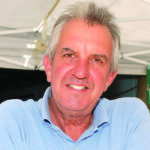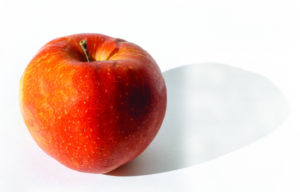
GEORGETOWN Doctors and nurses know a lot. I imagine medical school to be a grueling, hazing onslaught of anatomy, physiology, endocrinology, with organic chemistry as a pre-requisite, to understand how the human body is supposed to work.
New knowledge is coming in at a breakneck speed with advances in bio-mechanical technologies, genome coding (and altering), dialing in of pharmaceuticals, prosthetics, and even figuring out where our microbiome fits into the picture. The smiling dedication and the caring nature of medical professionals shines through. My hat is off to the doctors and nurses and technicians that take their work to heart and give us the courage to put our lives in their hands.
What they don’t know is us. What is it that each of our individual selves brings to them to fix? They know how the body assimilates amino acids and fats and sugars and calcium that we consume to make us who we are. The thing is, all 7+ billion of us on the planet have our own version of how those things work depending on our genetic predisposition, dietary habits, physical characteristics, support network of family and friends, aggressiveness of activity, cultural and spiritual beliefs, and emotional health—a reason for being, as it were. We are asking the medical community to utilize the preponderance of evidence, as they know it, to tailor a one-size-does-not-fit-all treatment plan to healing what ails every one of us. Our job is to bring them something good to work with.
Mom and Dad had everything to do with our basic building blocks and a say in how we learned to use our bodies and our minds to become productive members of society. At some point, we each take over the daily decisions that make us who we become. It seems to start with a positive attitude, which leads to better relationships, a thirst for knowledge, and concern for others. My one-time boss and major professor at UK once told me that success comes with eyes that see, a mind that works, and an action attitude. That advice stuck with me. The goal is to optimize the things that keep us strong and minimize the factors that pull us down, to be ready when something bad happens, as it probably will.
The Body Is an Ecosystem
Success, when it comes to staying strong to fend off the common cold and grow old gracefully, is to stay mentally and physically active and eat the foods our bodies need. From my vantage point, focusing on a healthy diet sets the stage for feeling good enough to encourage the pursuits of life. Our bones need calcium, phosphorus, and a few hundred other things that doctors know about to stay strong. Our circulatory system needs red blood cells and white blood cells and inflammation fighters (and thousands more things doctors know about) to carry nutrients and oxygen to every single cell, and not for nothing, to carry away the old dead cells as we replenish ourselves. Brains are mostly fat; we need cholesterol to function. Our job is to be sure our cells have the tools they need to handle each situation.
The laws of nature tell us that the more diverse an ecosystem, the more stable it is. We see it in the biology of the oceans and wilderness areas, in cultural exchange within a community, and in the foods we produce through our organic agrarianism. The preponderance of evidence points to a diet consisting of fruits and vegetables, nuts, and cuts of properly raised unadulterated meats to provide the balance of amino acids to make the multitude of different proteins our muscles need, the types of fats our brains function on, the minerals for skeletal and cellular structure, and the sugars to propel us. Not so sexy, but emerging science is coming out about the relationship between gut health and immune health. It’s pretty exciting; we really are what we eat. The microbes in your stomach convert the food you eat into the cellular “you.” The doctors know what happens, but it is worthy of more study to understand how the magic happens when microbes rule the world.
Processed Food is Malnutrition
Ultra-processed foods and many fast foods are trojan horses sneaking all types of man-made products into our bodies. Never before encountered by our cellular selves, they are cloaked in the name of fast, cheap, and tasty. A minute on the lips, a lifetime on the hips, as they say. The rise in diet-related disease correlates closely with the rise in fast food consumption, sugary soft drink intake, and with the proliferation of convenience foods processed beyond recognition. Eating this way has become the norm, and at what cost? Kentucky ranks high in our incidence of diet-related diseases like diabetes and hypertension, while cholesterol balances are out of whack, and obesity is endemic. Modern day malnutrition is shown in all its glory. Is not a proper diet the antidote to diet-related disease? We should all be grateful to the medical community for keeping us alive while we learn to invest in ourselves and take diet-related disease off the table.
Sunshine and Rich Kentucky Dirt
As organic farmers, our job is to convert solar energy into edible human food to feed our cells. We know a lot, too (and there’s a whole lot we don’t.) One thing we do know is that plants store the solar energy that feeds us and feeds the soil. It lives in the carbon and nitrogen and calcium (and a bazillion other things that collect it), which allows the soil to store the energy to raise the next generation of plants. In our robust regenerative farming system, we work to build natural immunity, while debilitating plant diseases are kept at bay. Remember that in organic farming systems, microbes rule the world, and we too took an oath to do no harm.
It seems likely that medical professionals want patients that come in for trauma repair or some insidious disease, like cancer, to be otherwise healthy. There seem to be many more options in the little black bag if we show up without a list of pharmaceuticals taken daily. Remember, that part of the job is to do no harm, and that’s tricky if our own bodily systems are all fouled up when we first present ourselves.
The preponderance of evidence indicates that when we eat a balanced, nutritious diet, we are putting ourselves in a position for good things to happen. There’s nothing faster or tastier than a fresh green salad, some steamed or sauteed veggies, sliced fresh tomatoes, grilled corn on the cob, or a juicy grass-fed burger. Why put ourselves in harm’s way when eating good foods is so good for us, good for public health, and good for the environment? We will feel better and have more time with family and friends, and our doctors will thank us for it in the long run.
Mac Stone and his family operate Elmwood Stock Farm in Scott County, Kentucky. He was executive marketing director for the Kentucky Department of Agriculture and chair of the U.S. Department of Agriculture National Organic Standards Board.




